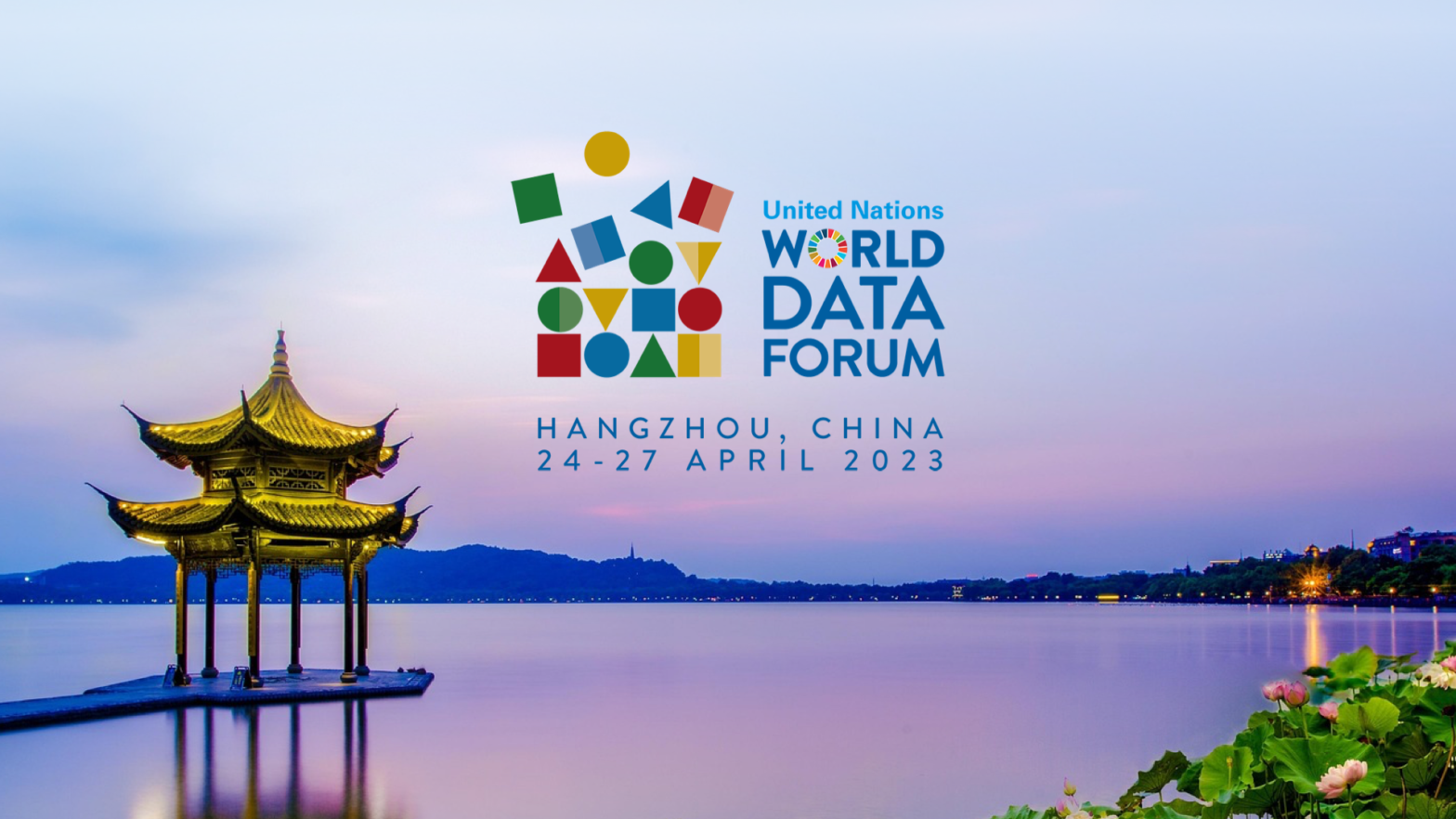The UN World Data Forum brings together data and statistical experts and users from governments, civil society, media and other key stakeholders to build a pathway to better data for sustainable development. The Forum took place in Hangzhou, Zhejiang Province in China from 24-27 April.
This year, UN Women had a strong presence, putting gender data in the forefront of the most important conversations around poverty, measuring tech-facilitated violence against women, citizen-generated data and others. Below are some of the events with UN Women engagement.
(TA2.40) Strengthening Violence against Women (VAW) Data and Measurement for Evidence-based Policies
The session was facilitated by UN Women and co-organized with WHO as part of the Joint Programme on VAW data, with their partners the African Population and Health Research Center, and jointly with INEGI, Data Pop Alliance and Rainbo Initiative Sierra Leone. Panelists shared their efforts to strengthen the availability of quality VAW data, through the production of comparable prevalence estimates for SDG monitoring, the first African course on VAW prevalence data, strengthening national administrative data systems and using artificial intelligence and machine learning to analyze prevalence data in Sierra Leone.
(TA1.11) Leveraging innovations to measure and understand poverty and inequities, including the impact of crises on women, men, girls and boys
At this session co-organized with the World Bank, Laos National Commission on Advancement of Women, Mothers and children, Asian Development Bank, Save the Children and UNICEF, UN Women presented their forthcoming work on Evidence-based planning: forecasting poverty and food security based on policy scenarios to inform COVID-19 Response and Recovery from a Gender Perspective.
(TA4.37) Together we can do more: citizen-generated data for inclusive data ecosystems
The UN Statistical Commission recently appointed UNSD and UN Women as co-leads of a new Collaborative on citizen data, which was launched on 25 April at a session co-organized by UN Women, along with the Danish Institute of Human Rights, UNSD, PARIS21, GPSSD, and ICS Centre. The lively and interactive panel discussion centered around the importance of citizen data as a complimentary source to official statistics as well as the challenges and opportunities.
(TA.1.19) Closing the data gap: ethical measurement of technology-facilitated violence against women
UN Women facilitated this session as part of consultations to inform globally agreed methodologies for the measurement of technology-facilitated violence against women and shared the UN Women-WHO and Ladysmith’s scoping review on the state of evidence and data collection on technology-facilitated violence against women.
(TA 2.39) Driving impact from evidence: data that can accelerate achieving gender equality globally
UN Women co-organized a session with PARIS21, WORLD Policy Analysis, and UCLA, bringing together data producers and users for a powerful exchange on how gender data availability, quality and use can be improved to drive impact at global, national, and local level. The session recognized that to completely address the challenges in gender data gaps, actions should go beyond improving regular production of gender statistics and highlight the need to ensure that we are investing in the right interventions towards gender data including creating enabling mechanisms and data use.
(TA 1.08) Boosting data availability on agricultural landownership from a gender perspective: Balancing inclusion and quantity
UN Women co-organized a session with FAO, DHS Program, Philippine Statistics Authority, and Nepal Central Bureau of Statistics to bring together various data producers from national statistics offices and international organizations who have been working together to increase SDG 5.a.1 data availability (on land ownership and women’s share of agriculture land). The session also included discussions and feedback on opportunities to further boost availability of SDG 5.a.1 and other indicators in terms of partnerships and financing.
(LEARN.303) National Statistical System (NSS) cooperation to increase the use of administrative data for official statistics: Interactive learning session
As an active member of the Collaborative on Administrative Data (CAD), UN Women served as the communications champion for the CAD learning event at the World Data Forum. UN Women developed strategic communications materials, provided knowledge resource materials, and generated publicity for the session, which was hosted by the UN Statistical Division/DESA and Global Partnership for Sustainable Development Data (GPSDD).
